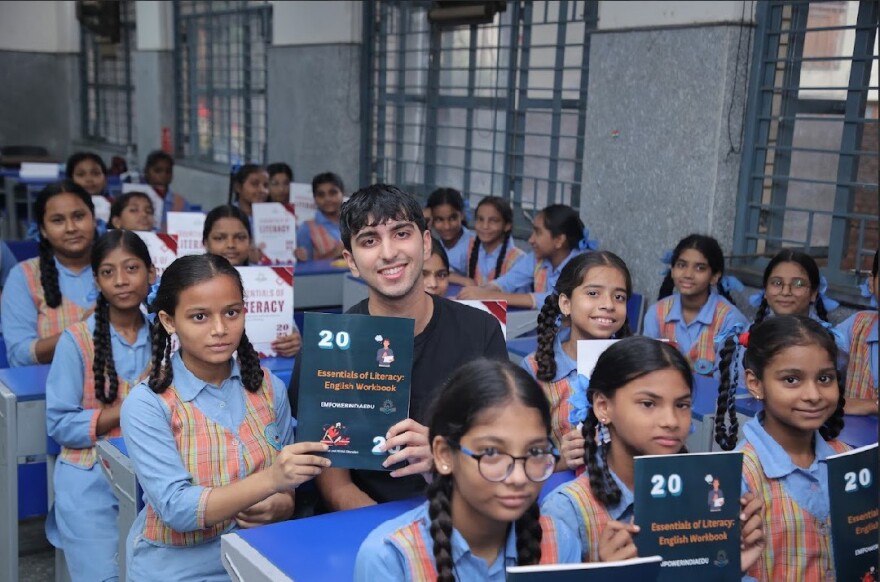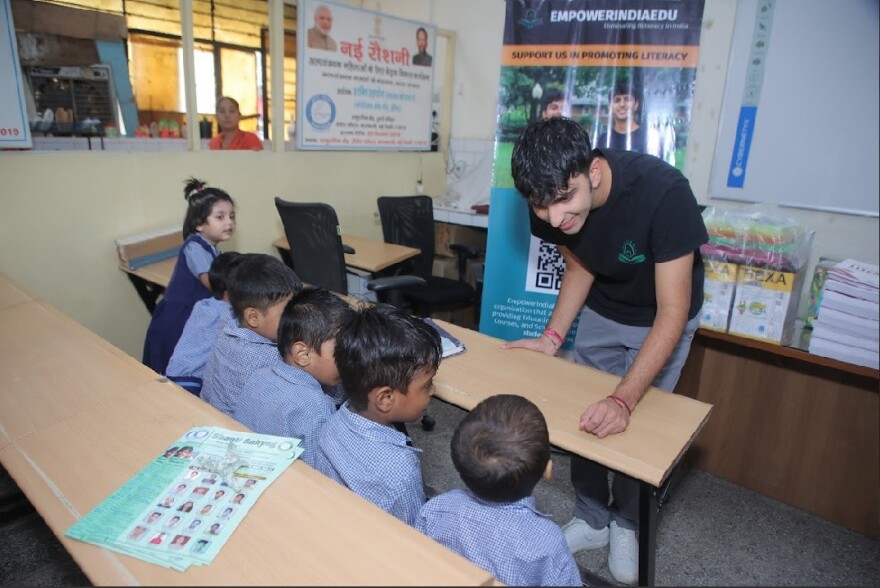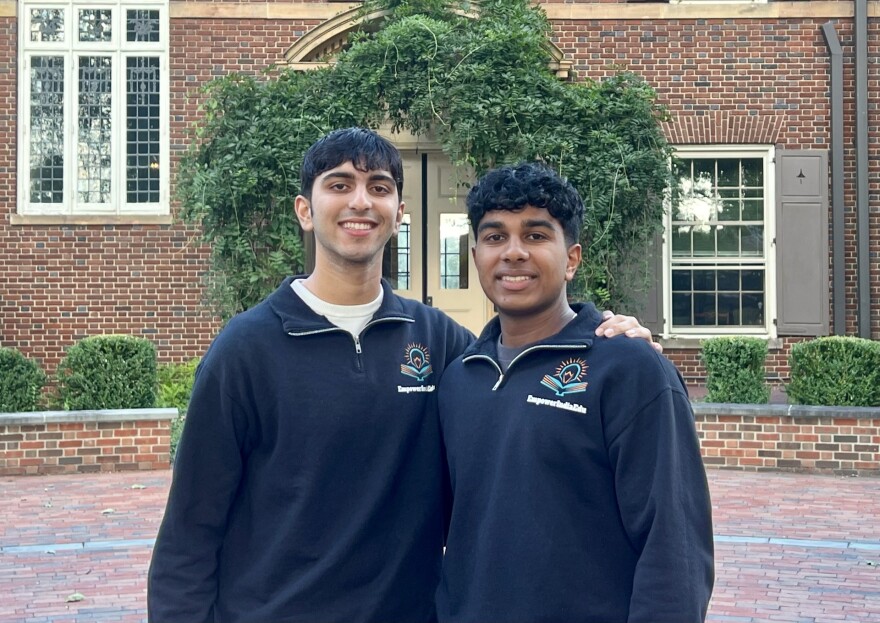BETHLEHEM, Pa. — On respective trips to their parents’ homeland, friends Aveer Chadha and Nikhil Skandan were struck by the immense poverty they witnessed in India.
They saw children as young as 3 years old selling wares by the side of the road to help their families make ends meet.
For some parents in India, the value of an education isn’t clear, and the harsh realities of their economic situations take precedence, Chadha and Skandan, both seniors at Moravian Academy in Bethlehem, told LehighValleyNews.com.
“When we go to school here, the privilege that we have [is] not even comparable to what goes on in India."Nikhil Skandan, founder of EmpowerIndiaEdu
“When we go to school here, the privilege that we have [is] not even comparable to what goes on in India,” Skandan said.
“It is entirely different. It's so loosely structured, free flowing. Nobody cares if you do go to school.”
That’s why Chadha and Skandan teamed up to create EmpowerIndiaEdu, a nonprofit organization focused on combatting illiteracy in India and promoting education as a means to upward mobility.
In their second year running the organization, the 17-year-olds recently expanded their reach to serve nearly three dozen new slum areas in India.
The organization now provides a free literacy curriculum to 52 partner schools, helping students in some of the country’s poorest regions learn how to read and write in English.
Chadha, who visited partner schools on an August trip to India, said the goal of the nonprofit is “to break the cycle of poverty” while also providing “a way for [students] to feel empowered.”
'Really building their vocabulary'
According to data from the United Nations Educational, Scientific and Cultural Organization, 18% of Indian adults in the country of 1.4 billion people were illiterate as of 2023, the most recent year with data. UNESCO classified adults as those ages 15 and older.
EmpowerIndiaEdu tries to combat the illiteracy problem early.
The organization encourages a love of learning in youth ages 2 to 7 by donating children’s books written in Hindi, an Indian language, and engaging with teachers to advocate for the importance of literacy skills.
Older students, starting in about fourth grade, learn English through the EmpowerIndiaEdu literacy curriculum.
They’re taught with an 84-page workbook full of graphics and pictures to keep the children engaged.

On his recent trip to India, Chadha visited EmpoweIndiaEdu’s first partner school, Shanti Sahyog in New Delhi.
The first 25 students who participated in the nonprofit’s pilot program are able to count to 10 in English, as well as name shapes, colors, fruits and vegetables, he said.
“They're really building their vocabulary in English,” Chadha said.
The students told Chadha their workbook is “cool” and “very fun to read,” he said.
“The general feedback from the teachers is just that it's very comprehensive, that it details a lot of literacy — both reading and writing — in a short, concise way that's applicable to the children and easy for them to understand.”
The nonprofit provides a workbook with the curriculum for adult learners, too.
Fundraising and global expansion
EmpowerIndiaEdu also donates resources to its partner schools. They include backpacks, lunch boxes, uniforms, pens, pencils, educational toys and mats for sports.
Some funds are donated to schools to hire storytellers who speak with parents about the importance of education and literacy.
There are 18,292 children who have been impacted by EmpowerIndiaEdu’s work, whether through the curriculum workbooks or the donation of resources, according to the organization.
As of July 31, the nonprofit had raised more than $25,800 since its founding.

There are 23 EmpowerIndiaEdu chapters in communities and high schools throughout the United States, Canada and India that raise funds and promote awareness of India’s illiteracy problem.
In those countries, the nonprofit has more than 500 student volunteers and community ambassadors.
In the past six months, EmpowerIndiaEdu also has expanded its literacy work to Uganda, where it donated books for students to learn its curriculum.
According to UNESCO, about 31% of adults ages 15 to 54 were illiterate as of 2016 data, the most recent that's available.
At the time, Uganda’s population was 38.8 million, according to the World Bank Group.
“I’m impressed with them constantly, and excited to see where they go next."Science teacher Cole Wisdo
Chadha and Skandan also want to expand their impact in the Lehigh Valley, they said.
They’re in the process of donating funds to local organizations that provide school supplies to children in need.
The high school students said they plan to continue the work of EmpowerIndiaEdu even as they head off to college next year.
Chadha plans to study economics and entrepreneurship, and Skandan plans to pursue medicine.
Their former science teacher Cole Wisdo said the teens' work over the past couple years has been rooted in their compassion for “the people around them and also the people they don’t even know.”
“I’m impressed with them constantly, and excited to see where they go next,” Wisdo said.


